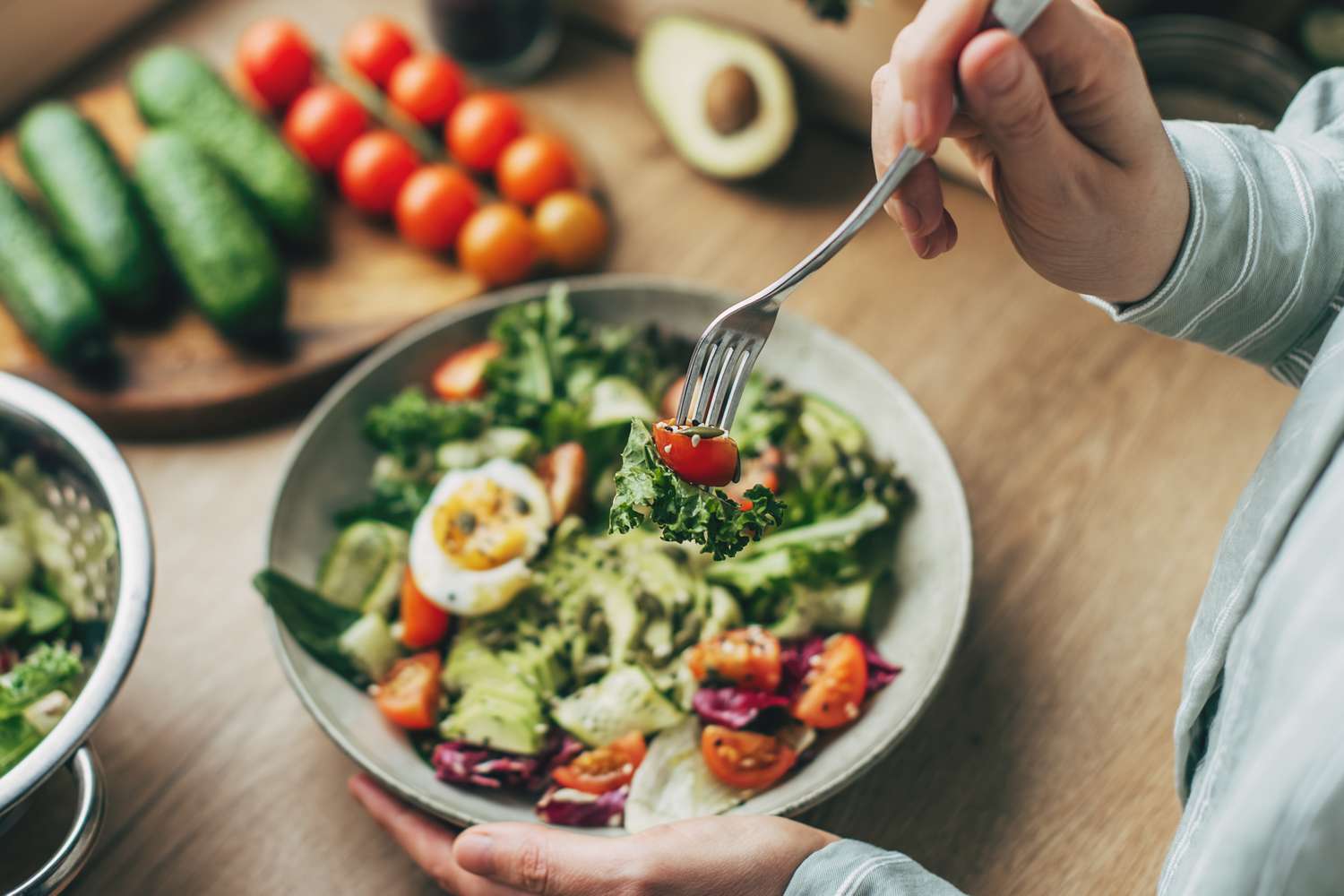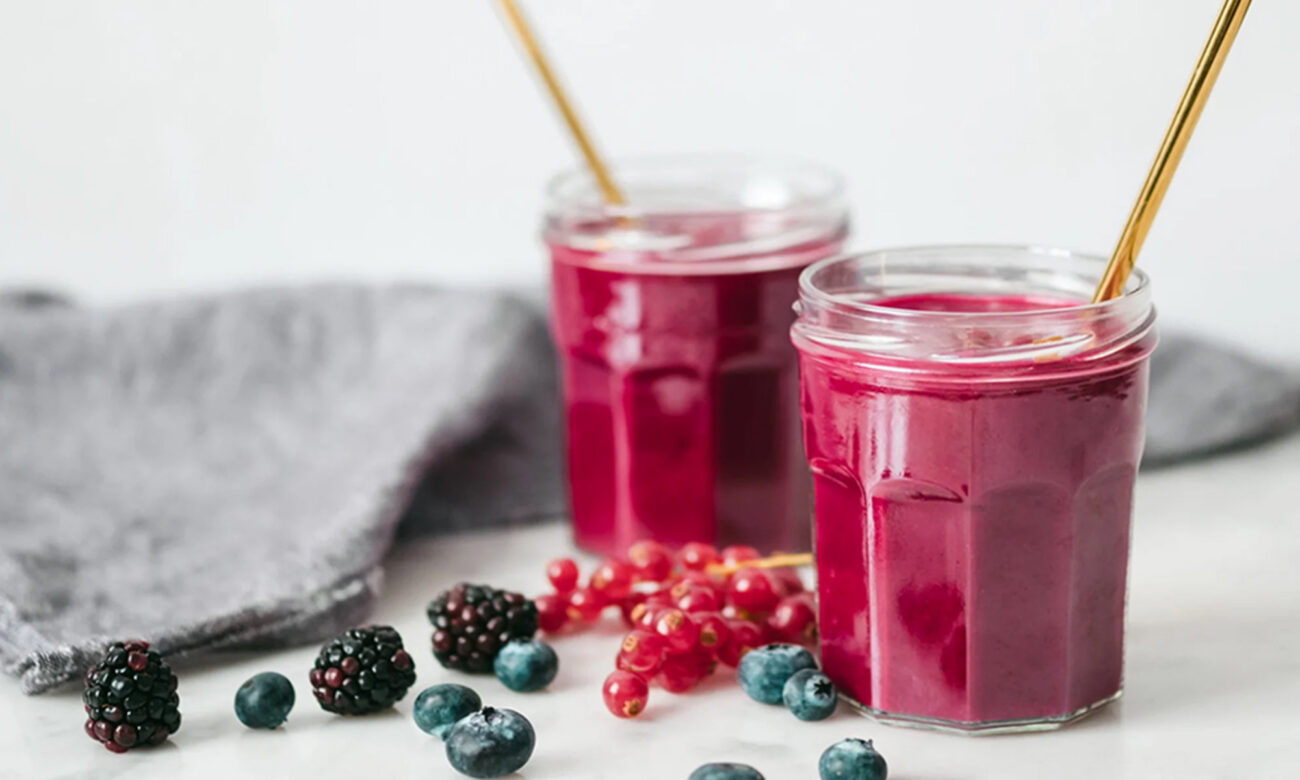Blog
Is Eating Too Many Raw Vegetables Hurting Your Gut?

- Raw veggies are rich in fiber, vitamins, minerals and antioxidants to support gut health.
- Some people with sensitive digestive systems may be more comfortable eating cooked veggies.
- All vegetables are equally healthy as long as they don’t cause discomfort.
Feeding your gut the right blend of foods and nutrients is key to helping it function at its best. Which begs the question – is eating too many raw veggies helping – or hurting – your gut health? Considering that less than 10% of us consume enough veggies to begin with, we decided it’s time to settle the debate. So, we put the question to gut health experts.
You might be surprised to learn that the answer isn’t the same for everyone. “Eating a large amount of raw veggies is not inherently bad,” says Kara Hochreiter, M.S., RDN, LD. “In fact, it can be a great way to boost your intake of fiber, antioxidants and key micronutrients. However, for those with poor digestive function and/or pre-existing gut conditions, too many raw vegetables can trigger or exacerbate symptoms and may even impair nutrient absorption.”
Let’s explore how raw veggies impact your gut health and if yours could benefit from a quick steam.
The Upsides of Raw Veggies
They Promote a Healthy Microbiome
Fiber is key for gut health. Yet, few of us get the recommended 25 to 38 grams of fiber we need daily. Adding more vegetables, whether raw or cooked, does double duty by helping to close this gap and support a healthy gut. How does the fiber in raw veggies work its magic on your gut? After you eat, say, a crunchy, sliced red bell pepper, its fiber travels to your gut. When it gets there, it’s fermented by your good gut bacteria. This process produces beneficial compounds called short-chain fatty acids, which help keep the lining of your gut strong and healthy.
They Contain Compounds that Support Your Gut
Raw veggies are also rich in phytochemicals that offer some pretty stellar gut health benefits. These compounds act as antioxidants that help protect your gut–and the rest of your body–from inflammation. This, along with the abundant vitamins and minerals in raw vegetables, provides a trifecta of gut-supporting protection.
They May Prevent Constipation
Whole grains aren’t the only foods that provide the fiber you need to stay regular. Raw veggies are a delicious way to load up on fiber to help keep things moving. Plus, they’re rich in water, which helps keep your poop soft and easy to pass. Cucumbers, lettuce, celery and tomatoes are all loaded with fluids.
The Downsides of Raw Veggies:
They Can Be Difficult for Some People to Digest
On the flipside, eating lots of raw veggies isn’t for everyone. This is especially true for people with underlying gut conditions, like irritable bowel syndrome (IBS) or inflammatory bowel disease (IBD). “When raw veggies are eaten in large quantities, they can be harder to break down due to their firm texture and high volume, which may lead to bloating or gas,” says gut-health dietitian Jessie Wong, MAcc, RDN, LD.
It’s not that raw veggies are harmful for people with these conditions. It may simply require more effort for their guts to digest them. If you have IBS or IBD, cooking your vegetables can help, says Wong. “Essentially, cooking breaks down the fibers and cell walls, making vegetables easier to chew, digest and absorb, especially for those with sensitive digestion,” she explains.
May Increase Bloating & Gas
If you have IBS or are sensitive to certain difficult-to-digest carbohydrates known as FODMAPs (short for fermentable oligosaccharides, disaccharides, monosaccharides and polyols), some raw veggies can make you gassy and bloated. “Cruciferous vegetables, such as broccoli, cauliflower, cabbage and kale, can be problematic due to their sulfur compounds and high fermentability,” says Hochreiter. “Onions and garlic are also common culprits, particularly for those with IBS or FODMAP sensitivities.” This doesn’t mean you have to avoid all raw vegetables, only the ones that cause discomfort.
They May Reduce the Absorption of Certain Nutrients
Some vegetables that are often eaten raw, like leafy greens, such as spinach and beet greens, are rich in calcium-binding compounds called oxalates. Oxalates aren’t only problematic for calcium absorption. They can increase the risk of kidney stones in some people who are predisposed to this condition. While cooking these leafy greens won’t remove all of their oxalates, it may reduce some of them. But if you love a leafy green salad, stick with low-oxalate greens like kale or romaine lettuce.
Does Cooking Veggies Get Rid of the Nutrients?
“While cooking can reduce some heat-sensitive, water-soluble vitamins like vitamin C and folate, it can also enhance the bioavailability of certain nutrients, like beta-carotene in carrots and lycopene in tomatoes, making it easier for the body to absorb after cooking,” says Wong.
Hochreiter points out that cooking vegetables may offer advantages for people with digestive issues. “Cooking helps break down tough fibers and may even reduce fermentable compounds, making vegetables easier to digest and less likely to provoke symptoms,” she says.
The way you cook your veggies can also impact their nutritional value. One study found that the amount of certain minerals in cooked eggplant, potatoes and zucchini varied substantially depending on how they were prepared. For example, both steaming and microwaving reduced the mineral content of potatoes, but zucchini’s minerals were largely unchanged whether they were raw or cooked. And the minerals in eggplant actually increased after grilling or microwaving.
The take-home message? There’s not necessarily a best way to cook veggies to maximize their nutrient absorption since this can vary depending on multiple factors. Instead, Wong recommends this simple rule of thumb when cooking veggies: “Use gentle cooking methods like steaming, roasting or sautéing with minimal water. While some nutrient loss is inevitable, cooked vegetables remain highly nutritious.”
Tips to Enjoy Veggies for Gut Health
Any vegetables can be a bonus for your gut, whether raw or cooked. To embrace more vegetables in your gut health routine, try these tips from Wong and Hochreiter.
- Think Slow and Steady: If you’re increasing your vegetable intake, do it gradually to give your gut time to adjust to their fiber.
- Experiment with Roasting: Roasting is one of the easiest ways to prepare delicious veggies. It softens their tough fibers, brings out their natural sweetness and enhances everything from grain bowls to breakfast scrambles.
- Blend Them: Blending vegetables into soups, stews, sauces or smoothies is another simple way to sneak in extra nutrients while also making their fiber easier to digest.
- Switch Them Up: Combine raw and cooked veggies in your meals for a full spectrum of nutrients and different kinds of fiber. Toss roasted peppers into a leafy green salad or top a baked potato with some fiery tomato salsa.
- Don’t Forget Healthy Fats: Cooking veggies with olive oil or pairing raw vegetables with avocado or tahini-based dips can improve absorption of vitamins A, D, E and K, which all require fat for absorption.
Healthy Vegetable Recipes to Try
Our Expert Take
If you’re worried that eating too many raw vegetables is hurting your gut health, you can probably relax. Raw veggies are rich in fiber, vitamins, minerals and antioxidants shown to support gut health. However, if you have a sensitive digestive system or are living with IBD or IBS, you may find that steamed or roasted veggies agree with your gut better. These cooking methods can help soften their fibers for a more comfortable vegetable-eating experience. In the end, almost all of us could benefit from eating more vegetables, whether they’re raw or cooked. So, choose what feels best for you and eat up!












